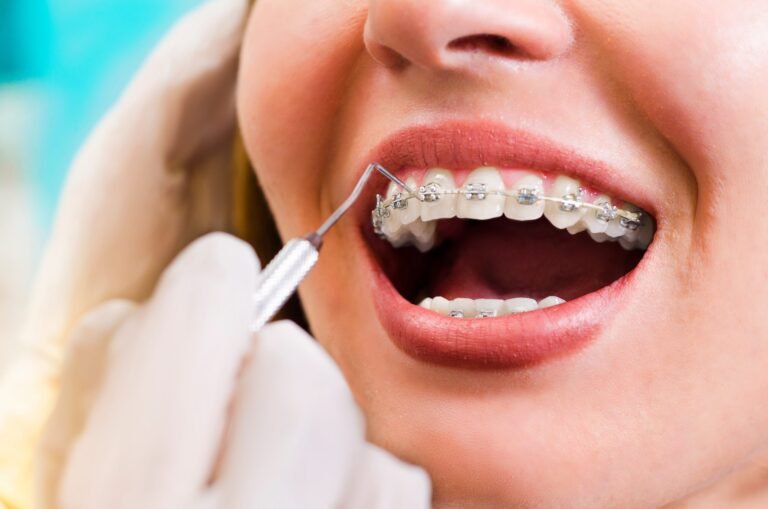Lactating Mother Diet: Everything You Should Know – Mishka IVF Center
Food choices during breastfeeding can be very confusing. Lactating mothers often ask how much they should eat what foods they should avoid? How does their diet affect the child’s health? In this blog, I am going to cover all your questions regarding lactating mother diet in this article. So, let’s start.
If you’re a lactating mother, your child gets nutrients through your food. Those nutrients help in the growth and the all-around health of your child. So, Always take care of your diet. Moreover, a good diet helps to improve breast milk for your child. If you’re looking for consultation regarding IVF children’s health, you must take medical assistance from the best IVF center in Jaipur. They provide the best possible solution to improve your child’s health. Moreover, let’s know more about nutrition should a lactating mother should take.
What are the Foods I should Eat while Breastfeeding?
Firstly, Lactating mother’s diet should be focused on consuming healthy food choices for yourself, which helps your body produce milk. Opt for protein-rich foods such as – Eggs, Dairy products, Beans, Lentils, Red meat, and seafood with low mercury. In addition, include various grains, veggies, and fruits in your diet.
Eating a variety of foods during breastfeeding days will change the taste of your milk. Also, This will expose the different tastes to your child, which might help your child to easily accept solid foods which your child is going to eat in a few months.
Your healthcare provider may include some multivitamins and minerals supplements in your regular diet to fulfill the need for nutrients in you and your child’s body.
How Much Liquid is Needed while Breastfeeding?
If your urine appears dark yellow, that means your body needs water. The Color of urine changes because of dehydration in the body. So, Always drink 2-3 glasses of water when you observe changes in urine color. And, When you’re thirsty, drink at least one full glass of water or another beverage before breastfeeding.
Be cautious of sugar-based drinks and juices. However, Excess intake of sugar may contribute to an increase in the weight of your body. Having too much Caffeine also can be trouble for you. Don’t take more than 2 to 3 cups of Caffeine based drinks a day. Moreover, the caffeine in your breast milk might disturb your child’s sleep.
How Many Calories are Required while Breastfeeding?
Yes, you might need extra calories in your diet than your regular diet. Add about 350 – 400 calories more to your current diet. It will provide more energy and nutrition to your body and help produce milk.
While adding an extra 350-400 calories, Try to opt for nutrient-rich foods like – whole-grain bread and peanut butter, yogurt, or an apple.
What Should One Know about a Vegetarian Diet and Breastfeeding?
If you’re a vegetarian, choosing foods rich in nutrients is the best recommendation for you. For example:
- Select foods that are rich in iron, calcium, and protein. Some foods with high iron include cereals, leafy vegetables, lentils, peas, and dried fruits like raisins.
- For getting protein. Consider plant-based protein sources such as Soy protein and other protein sources like meat, legumes, seeds, nuts, whole grains, eggs, and dairy products.
- Calcium-rich foods. Include dairy products and green vegetables such as paneer, tofu, soy milk, and yogurt.
- Supplements. Your doctor or healthcare provider will likely recommend some vitamin-B12 supplement to take daily. Vitamin B-12 is mostly found in nonvegetarian foods. So, It is a little difficult to get enough through a vegetarian diet. That’s why doctors recommend alternate supplements to vegetarian patients. However, If you don’t eat enough vitamin D in your regular meal, try to take food rich in vitamin D, such as cow’s milk and cereals. Your child also requires vitamin D to absorb calcium & phosphorus. The deficiency of vitamin D in a child can make bones weak. Consult with your doctor if you have a deficiency of vitamin D. They will suggest a Vitamin D supplement to include in your diet.
What Foods and Drinks Should be Limited or Avoided while Breastfeeding?
There are certain types of foods and drinks which deserve to be limited or avoided are listed below:-
- Alcohol. Try to avoid alcohol as much as you can. Because there is no safe intake level considered during the breastfeeding period. And, if you get drunk, try to avoid breastfeeding until the alcohol is completely cleared from the body.
- Caffeine. As I suggested previously, Avoid drinking more than 2 to 3 cups of Caffeine based drinks in a day. It might affect your child’s sleep.
- Fish. Seafood is a very great source of protein & omega-three fatty acids. Most seafood contains mercury and other impurities. However, If a child gets excessive exposure to mercury through breast milk. Then, it may pose a risk of harming the child’s nervous system. Avoid seafood such as – king mackerel, Swordfish & Tilefish.
Possible Allergies Mother Can Transit in a Child while Breastfeeding?
Sometimes certain foods from lactating mother’s diet may cause irritation or allergies to your child. If your child becomes fussy or gets a rash, diarrhea, or feels uncomfortable, consult with a child doctor for further help and guidance.
If you find something from your diet that affects the child’s health, Avoid that food or drink completely for a week or more. Then, to see if it makes a difference or not in your child’s behavior.
Conclusion
Lastly, there is no need for any specific diet while breastfeeding. Instead, try to get all the nutrients by taking small portions of various foods and making healthy choices for yourself and the child.







